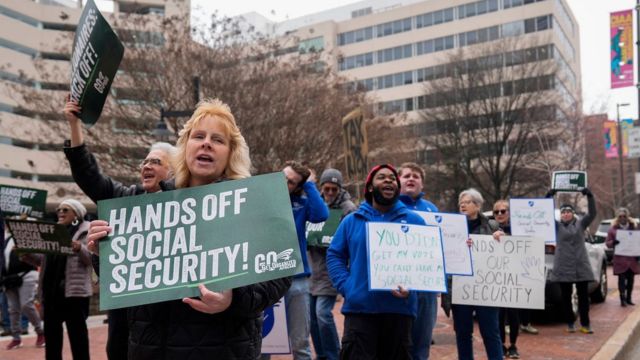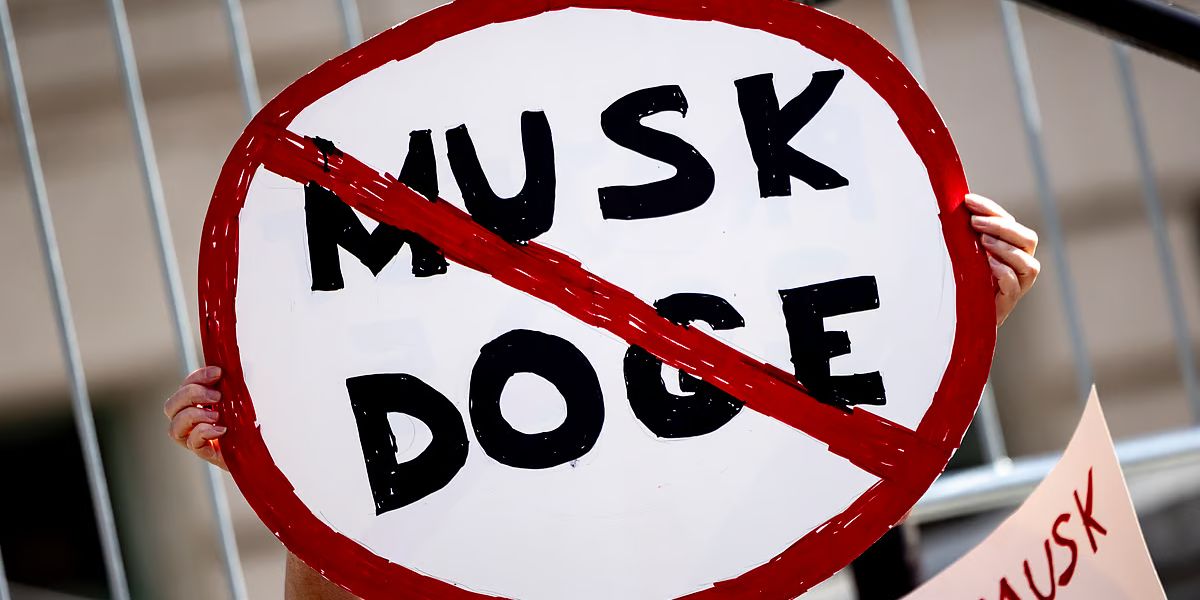Elon Musk’s Department of Government Efficiency was subject to further limitations on Thursday by a federal judge, which restricted its access to Social Security systems that include the personal information of millions of Americans.
A consortium of labor unions and retirees filed the case, arguing that DOGE’s recent actions violate privacy laws and pose serious information security threats. U.S. District Judge Ellen Hollander imposed a preliminary injunction in the case. A temporary restraining order had previously been imposed by Hollander.
If DOGE employees complete background checks and training, the injunction does permit them to view data that has been redacted or otherwise stripped of any personally identifiable information.
According to Hollander, DOGE and any employees connected to DOGE are required to delete any non-anonymized Social Security information they have obtained since January 20.
Additionally, they must uninstall any software or code they may have already installed, refrain from altering any of the Social Security Administration’s computer code or software, and refrain from sharing any of that code with third parties.
In the decision released late Thursday night, Hollander stated, “The goal to address fraud, waste, mismanagement, and bloat is laudable, and one that the American public presumably applauds and supports.” In fact, taxpayers have every right to anticipate that their government will ensure that their hard-earned money is not wasted.
But according to Hollander, that isn’t the problem; rather, it’s with DOGE’s approach to the task.
“For some 90 years, SSA has been guided by the foundational principle of an expectation of privacy with respect to its records. This case exposes a wide fissure in the foundation,” according to the judge.
Hollander frequently questioned the government’s lawyers during a federal court hearing in Baltimore on Tuesday, asking why DOGE requires “seemingly unfettered access” to the agency’s repositories of private data in order to detect Social Security fraud.
In protest of DOGE’s actions, which they see as a danger to the future of Social Security benefits, union members and pensioners gathered outside the courthouse.
“What are we doing that requires all of that data?” Hollander questioned if, at least in the preliminary phases of processing, the majority of the data could be anonymised.
The Trump administration’s lawyers claimed that altering the procedure would make their work more difficult.

Bradley Humphreys, a counsel for the Justice Department, told the court that although anonymization is feasible, it is quite onerous.
He maintained that the DOGE access doesn’t differ much from the agency’s standard procedures, which permit staff members and auditors to regularly search its databases.
However, plaintiffs’ lawyers described it as “a sea change” and unprecedented in terms of the agency’s handling of sensitive data, such as mental health and medical records and other information about children and people with disabilities — “issues that are not only sensitive but might carry a stigma.”
Alethea Anne Swift, an attorney with the legal services organization Democracy Forward, which is spearheading the complaint, said the access alone is a violation of privacy that harms Social Security users.
Since the start of President Donald Trump’s second term, the Social Security Administration has been in disarray.
Michelle King, the agency’s acting commissioner, resigned in February after denying DOGE employees the access they requested.
Read Also: Trump Orders Three-Month Extension of Federal Hiring Freeze
Leland Dudek was substituted by the White House for her, but he did not show up for Tuesday’s hearing when Hollander asked him to testify regarding current DOGE initiatives.
In a letter last month, the judge chastised Dudek for threatening to halt agency operations or halt payments due to Hollander’s temporary restraining order.
Hollander clarified that SSA employees who aren’t connected to or supplying data to DOGE are exempt from her directive and can still access any data they need for their daily tasks. According to her, DOGE employees who wish to view the anonymized data must first go through the standard background checks and training that all Social Security Administration employees must go through.
Dudek has been under pressure to step down in recent weeks after issuing an order requiring parents in Maine to register their newborns for Social Security numbers at a federal agency instead of the hospital.
The directive was swiftly revoked. Emails, however, revealed that it was political retaliation against Maine Governor Janet Mills, a Democrat who has opposed the Trump administration’s efforts to deny the state federal funding because of transgender athletes.
Hollander cautioned Humphreys when he implied at Tuesday’s hearing that her inquiry was beginning to “feel like a policy disagreement,” despite the delicate political background of the DOGE access issue.



